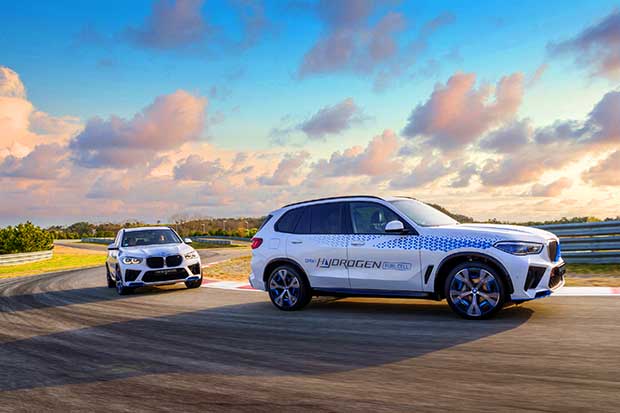
Hyundai Motor has dominated the hydrogen fuel cell vehicle market in the first quarter of the year by capturing 55% of the market. The company sold 2,600 fuel cell vehicles, which is a 47% increase from the same period last year. The Hyundai Nexo was the top-selling model, accounting for 62% of the company’s fuel cell vehicle sales. The company aims to increase sales of its fuel cell vehicles as it continues to invest in the technology.
According to the Korea Herald:
“A total of 3,737 hydrogen fuel-cell vehicles were sold worldwide in the first three months of 2023, up 4.5 percent on-year. Among manufacturers, Hyundai Motor sold a total of 2,042 vehicles, of which it sold 2,013 units of the Nexo — an 19.8 percent increase on-year. Hyundai’s market share increased from 47.7 percent to 54.6 percent, ranking first.
“Japanese automaker Toyota’s Mirai ranked second with sales of 902 units, down 32.6 percent year-on-year. Its market share also decreased from 37.4 percent to 24.1 percent, widening the gap with Hyundai Motor to 30.5 percentage points. China’s No. 1 truck maker Foton (110 units) and Chinese bus manufacturer King Long (24 units) followed.”
Hyundai’s strong performance in the hydrogen fuel cell vehicle market is driven by its focus on developing fuel cell technology and building a robust ecosystem for its vehicles. The company has been investing heavily in research and development to improve the efficiency and reliability of its fuel cell systems, while also expanding its network of refueling stations.
Hyundai’s success in the hydrogen fuel cell vehicle market is a testament to the viability of the technology and its potential to play a significant role in the transition to a low-carbon economy. With zero-emissions and long-range capabilities, fuel cell vehicles offer a compelling alternative to traditional gasoline and diesel vehicles, particularly for commercial and fleet applications.
While the adoption of fuel cell vehicles has been slower than that of electric vehicles, Hyundai’s strong performance in the market suggests that the technology is gaining traction and could see broader adoption in the coming years. As more automakers invest in fuel cell technology and infrastructure, the cost of fuel cell vehicles is expected to decline, making them more accessible to consumers.
In addition to the automotive sector, fuel cells also have applications in other industries such as power generation, stationary power, and backup power systems. As such, the growth potential for fuel cell technology is significant, and it is expected to play a key role in the transition to a low-carbon economy.
Hyundai is not the only company investing in fuel cell technology. Other automakers such as Toyota, Honda, and General Motors are also developing fuel cell vehicles and infrastructure. Moreover, governments around the world are offering incentives and subsidies to promote the adoption of fuel cell technology, which is expected to drive the growth of the market in the coming years.
In summary, Hyundai’s domination of the hydrogen fuel cell vehicle market in the first quarter of the year highlights the potential of the technology to become a viable alternative to traditional gasoline and diesel vehicles. With more investments in research and development and infrastructure, fuel cell vehicles could see broader adoption in the coming years, contributing to a more sustainable and low-carbon future.
Citation
https://www.koreaherald.com/view.php?ud=20230511000741